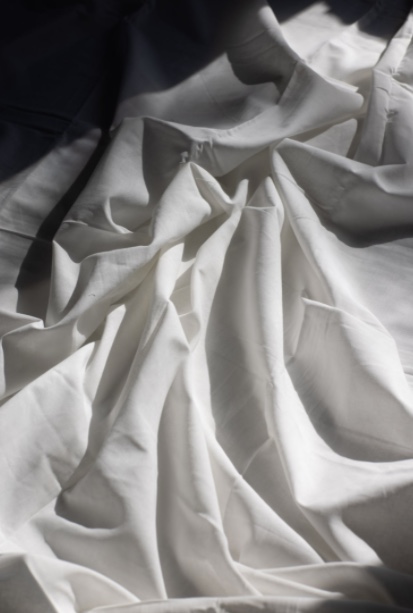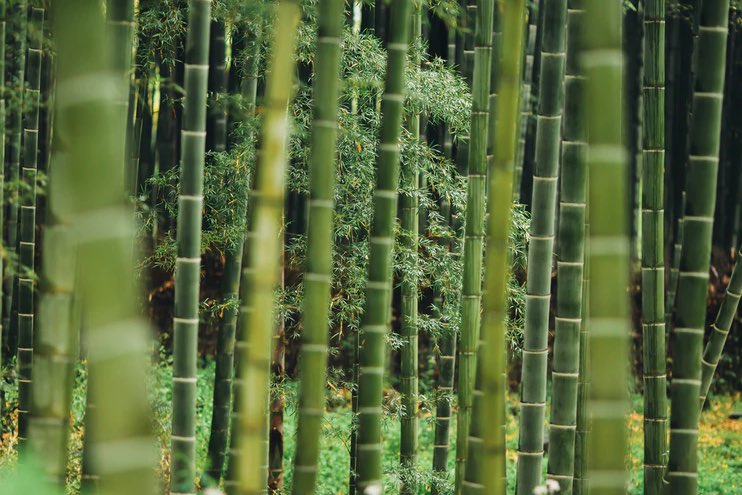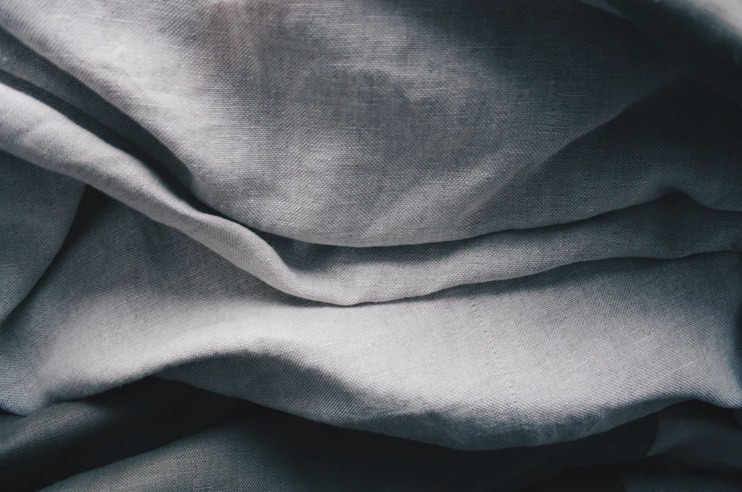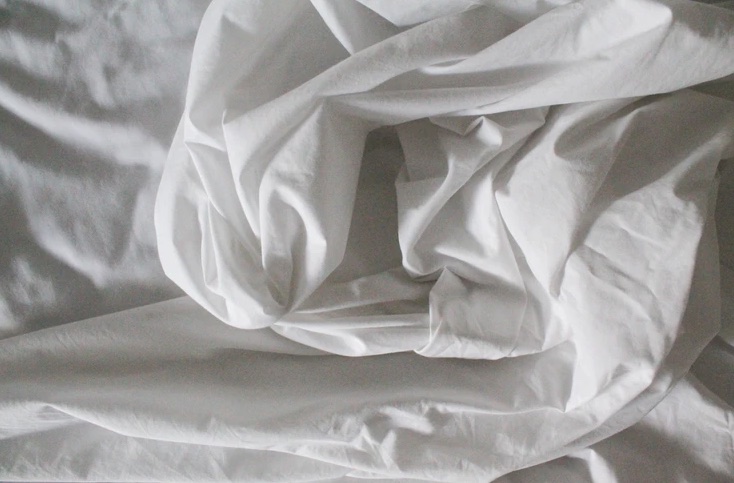Sleeping on bamboo sheets has many wonderful effects. The sheets made from bamboo are naturally soft and hypoallergenic, and they only need to be washed occasionally. Some individuals may be surprised to learn this because they have the misconception that dry cleaning bamboo sheets is necessary to maintain their excellent quality over time.
But they'll be relieved to know that's not the case. The softness and breathability of bamboo make for some of the best bedsheets, and their low maintenance requirements make them ideal for busy people.
Using bamboo sheets has several benefits, and one of them is that the bamboo aids with temperature regulation. The positive effects of this go beyond just one aspect. You won't have to deal with the bother of kicking the sheets off because you're too hot in the bed, nor will you have to deal with the sweat that accompanies being overheated, even on the hottest summer evenings. Because they soak up perspiration, regular sheets gradually become yellow over time.
Bamboo blankets are impervious to this type of disaster. The natural bamboo fibres of bamboo sheets absorb any excess heat the body emits during the night, thereby reducing nighttime perspiration. In addition, the body's own moisture is not absorbed by bamboo sheets because of their wicking properties. Because of this, bamboo sheets are naturally white and will remain so for the life of your set (and beyond).
It is not necessary to take any additional care when washing bamboo sheets; simply treat them as you would any other cotton or polyester sheet. The sheets may be washed with regular detergent and a gentle cycle to make them seem brand new. Bamboo sheets are one of the softest textiles you'll ever work with, so there's no need to use bleach or fabric softeners.
It's important to remember that washing your linens in cold water will extend the life of the fabric. Over time, bamboo sheets won't take on the greyish hue of older white sheets that can happen when they absorb harsh detergents.
Now that you have your very first set of bamboo sheets, you may be wondering how best to care for them. You can wash and dry it in the same way you do your other linens, but at lower temperatures and with a milder liquid detergent. Because bamboo has shorter fibres than cotton, washing them at low to medium temperatures will help them retain their softness and durability. As bamboo fibres are antimicrobial, antifungal, and antibacterial, there is no need to use bleach on them. Helpful for modern eco-conscious homeowners that want to reduce their chemical footprint.
This post is great for anyone who have previously invested in bamboo sheets but are looking for maintenance tips. Read on, and you'll learn everything you need to know about caring for your bamboo towels and linens.
The best approach to clean your bamboo sheets is outlined below so you can get back to sleeping on soft, breathable bedding. As an added bonus, we'll discuss some of the most typical ways in which people destroy their bamboo sheets.
It's important to take good care of your new bamboo bedding if you want to maintain it feeling as plush and cuddly as possible and for it to last as long as possible. Linens can be kept clean and soft by washing them in cool to warm water using a mild or eco-friendly liquid detergent. You may finally sleep well without worrying about whether or not the sheets you lay on smell like bleach because bamboo is naturally resistant to bacteria, odours, and mildew. Fabric softeners and dryer sheets can leave a film on your sheets and even change their colour, so it's best to avoid using them.
And you won't even want them, because bamboo linens are so incredibly soft on their own. Balls for the washing machine or dryer should be avoided with bamboo and other sensitive fabrics because they can grasp and pull on fibres, causing them to tear or pill. Since bamboo has shorter fibres, some of them will release during the first wash, which may lead to a bit more lint in the dryer. Please wash your new linens before using them for the first time, as bamboo also shrinks the first time it is washed, and as a result, we have made the linens a little bit bigger than they need to be.
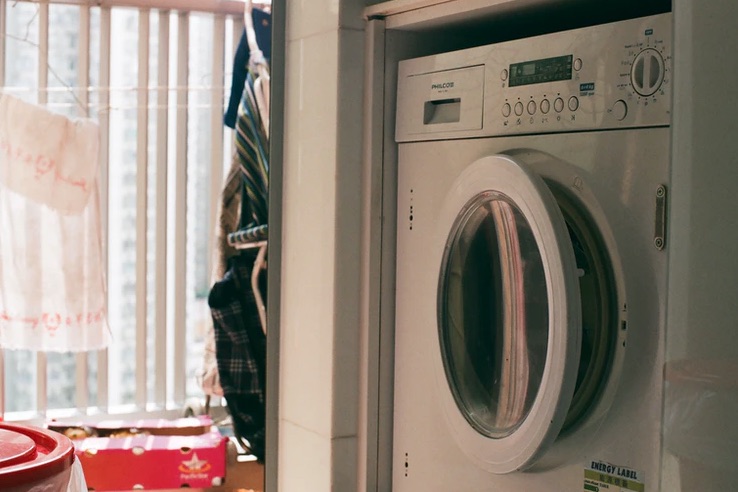
FAQ's About Bamboo Sheets
When washing one's bamboo bed sheets and other bedding products try to use a mild detergent and run the wash on the delicate/gentle cycle. Avoid using super hot water; most care instructions will suggest a cold or warm wash.
Fortunately, it's relatively simple to address bamboo bedding wrinkles: Air dry your bedding: wrinkles often occur when bedding is left in the tumble dryer for too long after the cycle has finished, when the material has time to crease and crinkle. The best way to avoid this is to air dry your bedding.
Bamboo sheets are a little more delicate than normal ones. This means that in terms of cleaning products, less is always going to be more. Make sure you're using a mild detergent and stay away from fabric softener.
Bamboo sheets retain their softness even after a machine wash and will remain that way once they're dry. When considering whether you can use fabric softener on bamboo sheets, note that it will add a layer of film to your sheets and even discolour them. This is why you shouldn't use fabric softener on bamboo bedding.
We do not recommend bleach, fabric softener, washer balls or dryer sheets/balls. Harsher detergents can break down the fibers faster, shortening the lifespan of the bamboo blanket.
Bamboo Bedsheets—How Do You Clean Them?
Sheets must be washed independently of other laundry items. This allows the linens to soak in cleaner water because there is more room for the water to circulate. Sheets can be washed separately to avoid the risk of pilling and to protect against damage from zippers and other fasteners.
Sheets should be pre-treated for stains before being washed. Bleach can ruin your linens, so don't use it on them. You can use 1/4 cup of lemon juice in place of bleach when washing white bedding. Sheets made of cotton or a cotton-polyester combination should be washed in a gentle detergent. It's possible that more delicate textiles like silk and linen need a special detergent.
If your washing machine has a central agitator, you can decrease the potential for sheet damage by rolling each sheet into a loose ball before placing it in the tub.
When washing, use the delicate cycle and wash in cool or lukewarm water. To minimise wrinkles, take out the sheets as soon as the cycle is complete. Wrinkles can be minimised while drying sheets by shaking them out first.
Sheets should be dried on a clothesline outside, away from direct sunlight, whenever possible. Make sure to dry your garments on the lowest heat setting possible in the dryer to prevent any irreparable heat damage.
As soon as the dryer cycle is complete, take out the sheets and fold them, smoothing out any creases with your hands. If the sheets have wrinkled, you can add moisture by drying them for an extra five minutes with a damp towel. Using an iron on the sheets is discouraged since the high heat can ruin the fabric.
With bamboo sheets and cleaning supplies, less is more. It's best to use a soft detergent and the delicate/gentle cycle when washing bamboo sheets and other linens.
It is recommended that you use cold or warm water while washing your garments according to the care instructions.
Fabrics that have been stained should be treated with a chlorine-free stain remover rather than bleach or another harsh cleaning agent.
If you're looking for a do-it-yourself solution, it's recommended that you use baking soda-based cleaners instead of vinegar, which might deteriorate bamboo fibre.
Linens should be changed every week to 10 days throughout the summer. You just need to wash them every two weeks during the winter.
Things to Keep in Mind:
- Be sure to use cold water (no more than 30 degrees Celsius) and a gentle cycle when washing your bamboo bedding.
- Zippers, hooks, and the like can snag and pill clothes, so it's best to wash them separately.
- You shouldn't wash your sheets with towels or blankets either unless you want your bed to be completely covered in lint.
- Choose a liquid detergent that is both gentle and environmentally friendly. If you choose to use powder, be sure to dissolve it completely before washing your bamboo sheets.
- Bleach is not something you should use because it contains harmful chemicals.
- Pre-soaking your bamboo sheets in an eco-friendly laundry pre-soak and using a stain remover made from natural ingredients might help restore their original brilliance.
- Bamboo sheets don't require fabric softener because they come pre-softened and retain their suppleness after washing.
The Proper Way to Dry Your Bamboo Sheets
Bamboo sheets are best dried flat on a line to prevent shrinking, fading, and damage to the fibres and colours. Choose a low heat and low tumble cycle if you must use a dryer. Avoid creases by taking clothes out of the dryer as soon as they are done drying.
The bamboo sheets' superior drape is a major advantage. Wrinkles from washing or storage usually disappear within a few hours. You can count on them to be completely deflated and ready for a good night's sleep by the time you get into bed at night. You can iron them at a low temperature to make them look crisper right away.
After washing, your clothes may feel stiff, almost as if they were made from a different material. When it's finished drying, you'll notice a difference.
Drying your bamboo clothes or linens outside in good weather is ideal, but since that's not always possible, there are a few simple rules to keep in mind when drying them inside.
Machine drying should be done on the gentlest cycle setting and for the shortest time possible. Don't delay taking items out of the dryer once you're done with them.
As a side note, bamboo's natural moisture-wicking and absorption capabilities can make it take longer to dry your goods if you can do so outdoors. Hence, you might wish to get an early start.
How Often Do Bamboo Bed Sheets Need to Be Washed?
Professionals in the laundry business advise washing bed linens once a week or twice a month. There is no difference between bamboo sheets and regular cotton sheets. To keep your sheets looking fresh for longer, wash them once a week (or more often if you live in a humid area). Dirt, dust, skin cells, body oils and fluids, and faeces all collect on sheets as a result of time spent in bed. As these particles remain on the sheets for longer, the fibres become increasingly stressed. In addition, microscopic mites can be drawn to dead skin cells, oils, and fluids from the body.
Leaving your sheets on the bed for an extended amount of time might cause the fabric to stretch out of shape. It also makes them more likely to tear in the washing machine.
You can cut down on how often you have to wash your clothes if you shower before night. Sheets will stay cleaner for longer if sweat, oils, and grime are kept off the bed.
You should always have spare sheets on hand so that you can change to a clean set whenever you like. Keeping three sets of sheets per bed in rotation will keep them in good condition for a longer period of time.
How Often Should You Change Your Bamboo Bedding?
This is something that is different for each individual. When your sheets start to show signs of wear and discoloration, it's time to think about replacing them, just like with conventional cotton sheets. After 12-18 months of frequent washing and tumble drying, your sheets may show signs of wear and tear. Sheets can survive for years if treated with care.
Sheets made with the sateen weave are significantly softer than those made with other types of weave, but they are also more fragile. Avoid putting sharp objects (such garments with zippers) on their bed, and treat them gently. A little tear or hole in your sheets requires prompt attention to prevent the damage from spreading.
After a while, even the most luxurious bedding will need to be replaced. Frayed hems and stains can be signs that it's time to upgrade after years of use. It is recommended that bamboo pillowcases be changed more frequently than other bed linens. The oils from your hair, skin, and cosmetics rub against the fabric and contribute to this problem. While sheets and duvet covers should be changed every 12-18 months, pillowcases should be changed every 6 months.
Can You Recycle Your Bamboo Sheet?
It's good to get new bamboo sheets every once in a while to give your bedroom a little facelift, but what do you do with the old ones? Tossing away clothes made from bamboo is completely risk-free because the material breaks down completely in landfills. However, as a sustainable company, we urge you to follow the three R's wherever possible: reuse, recycle, and reduce. Read this post for advice on creative uses for your worn out bed linens.
How Do I Get Stains Out of Bamboo Sheets?
As much as possible, please don't use bleach. Bleach can quickly eat a hole in our bamboo fibre sheets. So, is there anything you can do? When dealing with light stains, try using a stain remover and pre-soak that is kind to the environment.
A mixture of vinegar and water can be used to remove stains. The stain can be removed by applying a mixture of one part vinegar to four parts water to the area and letting it sit for a few hours. Enzyme-based stain removers, which do not include chlorine, can be useful for removing particularly tenacious stains.
Any stain solution you plan to use should be tested on the bamboo fabric bag your bedding arrived in to be sure it will not damage the fabric.
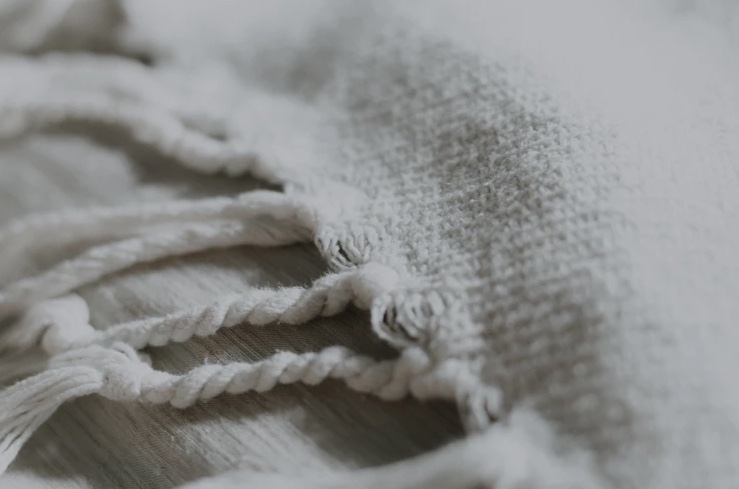
Sweat
Blood and perspiration are two of the most typical types of bodily fluid stains that you may encounter. After being exposed to microorganisms, sweat takes on a disgusting yellow hue. The easiest way to prevent this from happening is to wash your linens frequently.
In the event that the sweat stains turn yellow, they can be removed with a mild detergent and a soft rubbing motion.
Blood
When compared to sweat, blood can be a bit more difficult to get out of your bedding. If you happen to get blood on your linens, the first thing you should do is soak the affected area in cold water to prevent the stain from setting in.
Apply an enzyme cleaning after the area has soaked for a while. It's crucial that this disinfectant doesn't have any chlorine in it. You should check on the linens after letting them soak in the cleaner and cold water for around 15 minutes.
Putting it in the washing machine as normal should be fine if the stain is gone. Bamboo sheets can also be cleaned efficiently using hydrogen peroxide. Use hydrogen peroxide at a concentration of 3% and follow up with a rinsing in cold water. This technique is most effective on new stains.
Hydrogen peroxide serves as the foundation of yet another effective do-it-yourself cleanser. To create a natural and effective remedy for bloodstains, mix one cup of it with 12 glasses of water and 1/4 cup of lemon juice.
Taking Care of Sweat and Body Fluids
The occasional yellow stain on your sheets is to be expected. These spots frequently collect sweat and other bodily fluids. Listed below are some possible causes of nighttime perspiration. Some fatty, wet foods, extreme heat, and emotional/sexual excitement all contribute to bloating.
A Stain/Odor/Fluid - Using a mattress topper made from moisture-resistant bamboo is one option if you find yourself constantly changing sheets due to excessive sweating. The techniques below can also be used on bamboo underwear or bamboo pants, which are frequently exposed to sweat and other perspiration.
Can You Whiten the Sheets?
White linens in particular might start to seem dingy after a while. None of them, not even bamboo ones, are exempt from this rule. Don't fret, though; they may be brightened without the use of bleach.
It's been proven that citrous juice can effectively whiten clothing. Putting a few drops of lemon juice into the washing machine will do the trick. In addition to bleach, white vinegar can be added to the washing machine to help whiten your clothes.
Baking soda can also be used to make a detergent. To restore your linens' former brilliance, simply soak them in a solution made from four litres of water and one cup of baking soda.
How Can You Get Rid of Sweat Stains on Bamboo Bedding?
As a first point, perspiration is not yellow. Nonetheless, if it comes into contact with germs, it could turn yellow. Pillows are a prime target for these yellow stains, which can also discolour a bamboo pillowcase. One easy way to solve this is to regularly wash your bedding to prevent the buildup of bacteria that would otherwise make perspiration undetectable.
Use a detergent, such as Oxyclean, and rub the stain until the detergent is completely absorbed to remove the stain. The next step is to wash it as you normally would, and the stain should come out. If that doesn't work, just do it again.
Are Bamboo Sheets Pill-Proof?
Carefully handling our sheets will not cause them to pill. Intense friction or the application of caustic chemicals can lead to pilling since they generate heat and wear down the fabric. Sheets will pill if you use harsh detergents, wash them with rougher fabrics, or toss and turn a lot in bed. It is recommended that you use a mattress protector to lessen the friction that occurs when your sheets are pressed against your mattress if you are a chronic tosser and turner.
How Do You Best Maintain the Quality of Your Bamboo Sheets?
The delicate fibres of silk are often damaged if not washed properly. For the first few things in a load of laundry, hand washing is recommended. Silk sheets should not be wrung. Simply wipe them with a towel. Wash in cool water on a gentle cycle or by hand, using Woolite detergent or the manufacturer-recommended soap. Line dry the sheets in the shade, or tumble dry them on the lowest heat setting above air fluff.
Linen can be washed at hotter temperatures than most other sheet materials since it is made of a very sturdy natural fibre. Approximately 104 degrees Fahrenheit. Linen sheets can be made softer by washing them frequently. It's best to use a mild detergent, but stay away from bleach and detergents that include chlorine. Sheets made of linen don't need a long or hot dryer cycle because linen dries more quickly than other textiles. The hot linen setting on your iron is ideal for ironing linen.
Laundry detergents that are gentle on fabrics, like bamboo, are recommended. Sheets made of bamboo can be damaged by the use of bleach or other harsh cleaning agents. Wash on a delicate cycle and anticipate some fading in the first few washes (which is why you should wash them separately). Sheets can be dried in a dryer on a low heat setting or the air dry mode, but drying them naturally in the air is preferable.
How Do I Best Iron My Bamboo Bed Sheets?
Although bamboo can withstand a lot of heat, the fibres can be burned if the temperature is too high. When ironing clothes or other goods, it's important to remember to use the lowest heat settings possible to prevent burning the fabric. If you absolutely must use steam, use it sparingly.
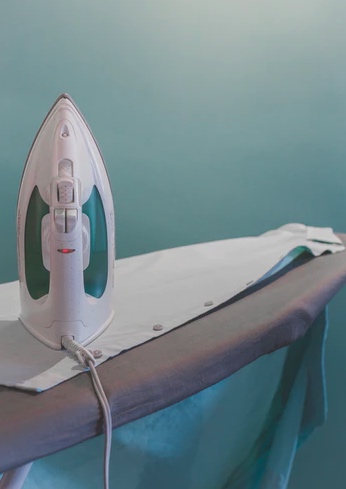
What Are the Things to Avoid?
There are several things you should never do to your bamboo products if you want them to last as long as possible.
- Bleach is toxic to bamboo fibres and will harm your belongings. You may try something else, like baking soda.
- Avoiding the use of chlorine bleach, hydrogen peroxide, and other similar chemicals can keep your clothes from fading. Chlorine bleaches in particular can degrade and discolour the material.
- Fabric softeners are unnecessary (the material is already very soft) and not encouraged because of the risk they pose to the fabric's integrity.
- Using dryer sheets is not advised.
When Not in Use, How Should Bamboo Sheets Be Stored?
The time has arrived to put away your freshly laundered sheets. In most cases, individuals will either return them to their beds or put them aside. If you have more than one pair of sheets and switch them out frequently, storing them is a need.
Plastic bags and cardboard boxes are two items you should avoid. Cardboard allows for the entry of acidic substances, which will yellow the sheets, while plastic allows for the entry of moisture. Make sure the linens are kept someplace cool, dry, and out of the sun.
Each purchase of our bamboo bedding comes with a free tote bag constructed from bamboo fibres that have been recycled from other products. After use, just fold your bamboo sheets and place them back in the natural bamboo bag. Don't keep them in plastic because that will just retain the moisture and cause mildew and discoloration. Keep away from cardboard as well, as it can leach acids into your clothing. Keep your linens out of the sun and in a cool, dry area.
Bamboo fabric requires no special treatment to stay clean and fresh. Shirts, linens, and the rest of your bamboo collection will last longer with just a little TLC.
Conclusion
Using bamboo sheets has several benefits, and one of them is that the bamboo aids with temperature regulation. The natural bamboo fibres of bamboo sheets absorb any excess heat the body emits during the night. Because of this, bamboo sheets are naturally white and will remain so for the life of your set (and beyond). As bamboo fibres are antimicrobial, antifungal, and antibacterial, there is no need to use bleach on them. Because bamboo has shorter fibres than cotton, washing them at low to medium temperatures will help them retain their softness and durability.
Balls for the washing machine or dryer should be avoided with bamboo because they can grasp and pull on fibres, causing them to tear or pill. Linens should be pre-treated for stains before being washed. Bleach can ruin your linens, so don't use it on them. It's best to use a soft detergent and the delicate/gentle cycle when washing bamboo sheets and other linens. Using an iron on the sheets is discouraged since the high heat can ruin the fabric.
Bamboo sheets don't require fabric softener because they come pre-softened and retain their suppleness after washing. Choose a liquid detergent that is both gentle and environmentally friendly. Bamboo sheets are best dried flat on a line to prevent shrinking, fading, and damage to the fibres and colours. Sheets made with the sateen weave are significantly softer than those made with other types of weave, but they are also more fragile. After 12-18 months of frequent washing and tumble drying, your sheets may show signs of wear and tear.
A little tear or hole in your sheets requires prompt attention to prevent the damage from spreading. As much as possible, please don't use bleach. Bleach can quickly eat a hole in our bamboo fibre sheets. When dealing with light stains, try using a stain remover and pre-soak that is kind to the environment. Read this post for advice on creative uses for your worn out bed linens.
Using a mattress topper made from moisture-resistant bamboo is one option if you find yourself constantly changing sheets due to excessive sweating. The techniques below can also be used on bamboo underwear or bamboo pants, which are frequently exposed to sweat and other bodily fluids. Some fatty, wet foods, extreme heat, and emotional/sexual excitement all contribute to bloating. The delicate fibres of silk are often damaged if not washed properly. Sheets made of bamboo can be damaged by the use of bleach or other harsh cleaning agents.
Linen sheets can be made softer by washing them frequently. When ironing, it's important to use the lowest heat settings possible to prevent burning the fabric. Fabric softeners are unnecessary (the material is already very soft) and not encouraged because of the risk they pose to the fabric's integrity. Plastic bags and cardboard boxes are two items you should avoid. Chlorine bleaches in particular can degrade and discolour the material.
Content Summary
- Sleeping on bamboo sheets has many wonderful effects.
- The sheets made from bamboo are naturally soft and hypoallergenic, and they only need to be washed occasionally.
- Some individuals may be surprised to learn this because they have the misconception that dry cleaning bamboo sheets is necessary to maintain their excellent quality over time.
- The softness and breathability of bamboo make for some of the best bedsheets, and their low maintenance requirements make them ideal for busy people.
- Using bamboo sheets has several benefits, and one of them is that the bamboo aids with temperature regulation.
- Because of this, bamboo sheets are naturally white and will remain so for the life of your set (and beyond).
- Bamboo sheets are one of the softest textiles you'll ever work with, so there's no need to use bleach or fabric softeners.
- It's important to remember that washing your linens in cold water will extend the life of the fabric.
- Now that you have your very first set of bamboo sheets, you may be wondering how best to care for them.
- Because bamboo has shorter fibres than cotton, washing them at low to medium temperatures will help them retain their softness and durability.
- As bamboo fibres are antimicrobial, antifungal, and antibacterial, there is no need to use bleach on them.
- This post is great for anyone who have previously invested in bamboo sheets but are looking for maintenance tips.
- Read on, and you'll learn everything you need to know about caring for your bamboo towels and linens.
- The best approach to clean your bamboo sheets is outlined below so you can get back to sleeping on soft, breathable bedding.
- As an added bonus, we'll discuss some of the most typical ways in which people destroy their bamboo sheets.
- It's important to take good care of your new bamboo bedding if you want to maintain it feeling as plush and cuddly as possible and for it to last as long as possible.
- Linens can be kept clean and soft by washing them in cool to warm water using a mild or eco-friendly liquid detergent.
- Fabric softeners and dryer sheets can leave a film on your sheets and even change their colour, so it's best to avoid using them.
- Balls for the washing machine or dryer should be avoided with bamboo and other sensitive fabrics because they can grasp and pull on fibres, causing them to tear or pill.
- Please wash your new linens before using them for the first time, as bamboo also shrinks the first time it is washed, and as a result, we have made the linens a little bit bigger than they need to be.
- Sheets must be washed independently of other laundry items.
- Sheets should be pre-treated for stains before being washed.
- Bleach can ruin your linens, so don't use it on them.
- When washing, use the delicate cycle and wash in cool or lukewarm water.
- To minimise wrinkles, take out the sheets as soon as the cycle is complete.
- Make sure to dry your garments on the lowest heat setting possible in the dryer to prevent any irreparable heat damage.
- With bamboo sheets and cleaning supplies, less is more.
- It's best to use a soft detergent and the delicate/gentle cycle when washing bamboo sheets and other linens.
- It is recommended that you use cold or warm water while washing your garments according to the care instructions.
- Linens should be changed every week to 10 days throughout the summer.
- You just need to wash them every two weeks during the winter.
- Choose a liquid detergent that is both gentle and environmentally friendly.
- If you choose to use powder, be sure to dissolve it completely before washing your bamboo sheets.
- Pre-soaking your bamboo sheets in an eco-friendly laundry pre-soak and using a stain remover made from natural ingredients might help restore their original brilliance.
- Bamboo sheets are best dried flat on a line to prevent shrinking, fading, and damage to the fibres and colours.
- Choose a low heat and low tumble cycle if you must use a dryer.
- Avoid creases by taking clothes out of the dryer as soon as they are done drying.
- The bamboo sheets' superior drape is a major advantage.
- Drying your bamboo clothes or linens outside in good weather is ideal, but since that's not always possible, there are a few simple rules to keep in mind when drying them inside.
- Don't delay taking items out of the dryer once you're done with them.
- Hence, you might wish to get an early start.
- Leaving your sheets on the bed for an extended amount of time might cause the fabric to stretch out of shape.
- It also makes them more likely to tear in the washing machine.
- You can cut down on how often you have to wash your clothes if you shower before night.
- You should always have spare sheets on hand so that you can change to a clean set whenever you like.
- Keeping three sets of sheets per bed in rotation will keep them in good condition for a longer period of time.
- When your sheets start to show signs of wear and discoloration, it's time to think about replacing them, just like with conventional cotton sheets.
- After 12-18 months of frequent washing and tumble drying, your sheets may show signs of wear and tear.
- Sheets can survive for years if treated with care.
- A little tear or hole in your sheets requires prompt attention to prevent the damage from spreading.
- After a while, even the most luxurious bedding will need to be replaced.
- It is recommended that bamboo pillowcases be changed more frequently than other bed linens.
- While sheets and duvet covers should be changed every 12-18 months, pillowcases should be changed every 6 months.
- It's good to get new bamboo sheets every once in a while to give your bedroom a little facelift, but what do you do with the old ones?
- However, as a sustainable company, we urge you to follow the three R's wherever possible: reuse, recycle, and reduce.
- As much as possible, please don't use bleach.
- Bleach can quickly eat a hole in our bamboo fibre sheets.
- When dealing with light stains, try using a stain remover and pre-soak that is kind to the environment.
- A mixture of vinegar and water can be used to remove stains.
- The easiest way to prevent this from happening is to wash your linens frequently.
- In the event that the sweat stains turn yellow, they can be removed with a mild detergent and a soft rubbing motion.
- When compared to sweat, blood can be a bit more difficult to get out of your bedding.
- If you happen to get blood on your linens, the first thing you should do is soak the affected area in cold water to prevent the stain from setting in.
- Apply an enzyme cleaning after the area has soaked for a while.
- You should check on the linens after letting them soak in the cleaner and cold water for around 15 minutes.
- Bamboo sheets can also be cleaned efficiently using hydrogen peroxide.
- To create a natural and effective remedy for bloodstains, mix one cup of it with 12 glasses of water and 1/4 cup of lemon juice.
- The occasional yellow stain on your sheets is to be expected.
- These spots frequently collect sweat and other bodily fluids.
- A Stain/Odor/Fluid - Using a mattress topper made from moisture-resistant bamboo is one option if you find yourself constantly changing sheets due to excessive sweating.
- Putting a few drops of lemon juice into the washing machine will do the trick.
- In addition to bleach, white vinegar can be added to the washing machine to help whiten your clothes.
- Baking soda can also be used to make a detergent.
- To restore your linens' former brilliance, simply soak them in a solution made from four litres of water and one cup of baking soda.
- Pillows are a prime target for these yellow stains, which can also discolour a bamboo pillowcase.
- One easy way to solve this is to regularly wash your bedding to prevent the buildup of bacteria that would otherwise make perspiration undetectable.
- Use a detergent, such as Oxyclean, and rub the stain until the detergent is completely absorbed to remove the stain.
- It is recommended that you use a mattress protector to lessen the friction that occurs when your sheets are pressed against your mattress if you are a chronic tosser and turner.
- For the first few things in a load of laundry, hand washing is recommended.
- Silk sheets should not be wrung.
- Simply wipe them with a towel.
- Line dry the sheets in the shade, or tumble dry them on the lowest heat setting above air fluff.
- Linen sheets can be made softer by washing them frequently.
- The hot linen setting on your iron is ideal for ironing linen.
- Laundry detergents that are gentle on fabrics, like bamboo, are recommended.
- Sheets made of bamboo can be damaged by the use of bleach or other harsh cleaning agents.
- Wash on a delicate cycle and anticipate some fading in the first few washes (which is why you should wash them separately).
- When ironing clothes or other goods, it's important to remember to use the lowest heat settings possible to prevent burning the fabric.
- Using dryer sheets is not advised.
- The time has arrived to put away your freshly laundered sheets.
- If you have more than one pair of sheets and switch them out frequently, storing them is a need.
- Make sure the linens are kept someplace cool, dry, and out of the sun.
- Each purchase of our bamboo bedding comes with a free tote bag constructed from bamboo fibres that have been recycled from other products.
- After use, just fold your bamboo sheets and place them back in the natural bamboo bag.
- Don't keep them in plastic because that will just retain the moisture and cause mildew and discoloration.
- Keep away from cardboard as well, as it can leach acids into your clothing.
- Keep your linens out of the sun and in a cool, dry area.
- Bamboo fabric requires no special treatment to stay clean and fresh.
- Shirts, linens, and the rest of your bamboo collection will last longer with just a little TLC.

